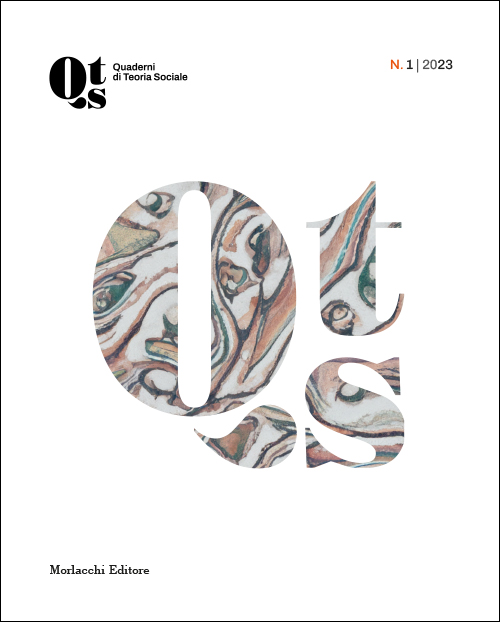La «storia vivente» dei gruppi. Forme di vita, istituzioni e memorie collettive in Maurice Halbwachs
DOI:
https://doi.org/10.57611/qts.v2i1.236Parole chiave:
Maurice Halbwachs, Groups, Institutions, Collective Memory, Forms of LifeAbstract
Starting from some insights provided by Georges Canguilhem’s review of Maurice Halbwachs’ book Les causes du suicide (1930), this article aims to develop the analysis of the relations between genres de vie, groups, and institutions in Halbwachs’ works, especially with regard to the institution of collective memory, in both its spatial and temporal dimensions. An in-depth examination of these questions will allow to focus on some of the issues at stake in Canguilhem’s reading, which valorizes Halbwachs’ sociological work in an anti-Durkheimian key: the necessary combination of the material nature of the plural forms of life that characterize groups, and the reflexivity that they produce; the complication of the reference to the notion of ‘social facts’ through the issue of social normativity, which regulates their configurations and the production of their meaning.
##submission.downloads##
Pubblicato
Versioni
- 2023-06-27 (2)
- 2023-06-27 (1)
Fascicolo
Sezione
Licenza
Copyright (c) 2023 Annagiulia Canesso

Questo lavoro è fornito con la licenza Creative Commons Attribuzione - Non commerciale 4.0 Internazionale.
<a rel="license" href="http://creativecommons.org/licenses/by-nc/4.0/"><img alt="Licenza Creative Commons" style="border-width:0" src="https://i.creativecommons.org/l/by-nc/4.0/88x31.png" /></a><br />Quest'opera è distribuita con Licenza <a rel="license" href="http://creativecommons.org/licenses/by-nc/4.0/">Creative Commons Attribuzione - Non commerciale 4.0 Internazionale</a>.






